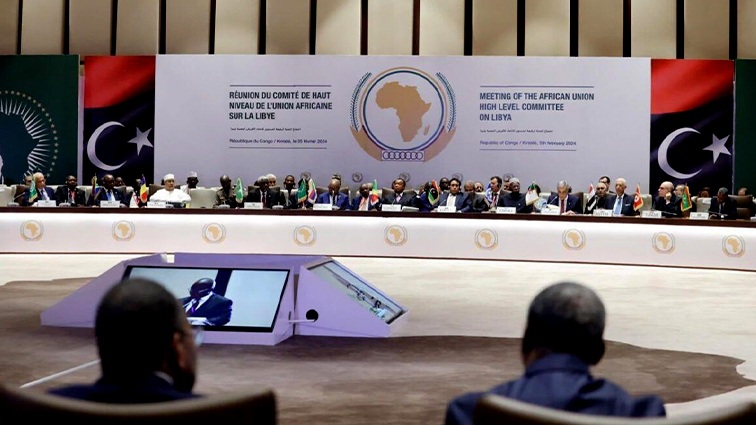At the end of a meeting in Congo’s capital, Brazzaville, a high-level committee of the African Union (AU) appealed for an end to external interference in the Libyan crisis.
The meeting, the ninth since the establishment of the African Union Commission, came as a prelude to the national reconciliation conference scheduled for April 28 in the Libyan city of Sirte.
The final communiqué, read out by Congolese Foreign Minister Jean-Claude Gakoso, said the members of the committee affirmed their support for Libya’s political process, which aims to organize general elections that will allow the unification of the government in the country.
The statement added that the committee renewed its call to all external parties to stop their interference in Libya’s internal affairs, which harm the interests of the Libyan people and their legitimate aspirations for stability, peace, and development.
For his part, the Chairperson of the African Union Commission, Moussa Faki Mahamat, noted that “the Libyan crisis has been protracted for a long time and has cost its people dearly,” and said that the crisis has fueled “terrorism in the Sahel region”.
Participants in the meeting included the President of Congo, Sassou Nguesso, the Chairperson of the African Union Commission, Moussa Faki Mahamat, the President of the Comoros, Azali Othmani, the Special Representative of the Secretary-General for Libya, Abdallah Batele, and the President of the Libyan Presidential Council, Mohamed Menfi.
The African Union says the Libyan crisis is multidimensional: military, security, political, institutional, economic, and financial.
Libya has been witnessing chaos since the fall of Muammar Gaddafi’s regime in 2011, and two governments are competing for power, the first controlling the west of the country, based in Tripoli, and headed by Abdul Hamid Dabaiba, and was formed after a political dialogue in early 2021, and the other controlling the east of the country, headed by Osama Hammad, which is mandated by the House of Representatives and supported by the army commander, Field Marshal Khalifa Haftar.
